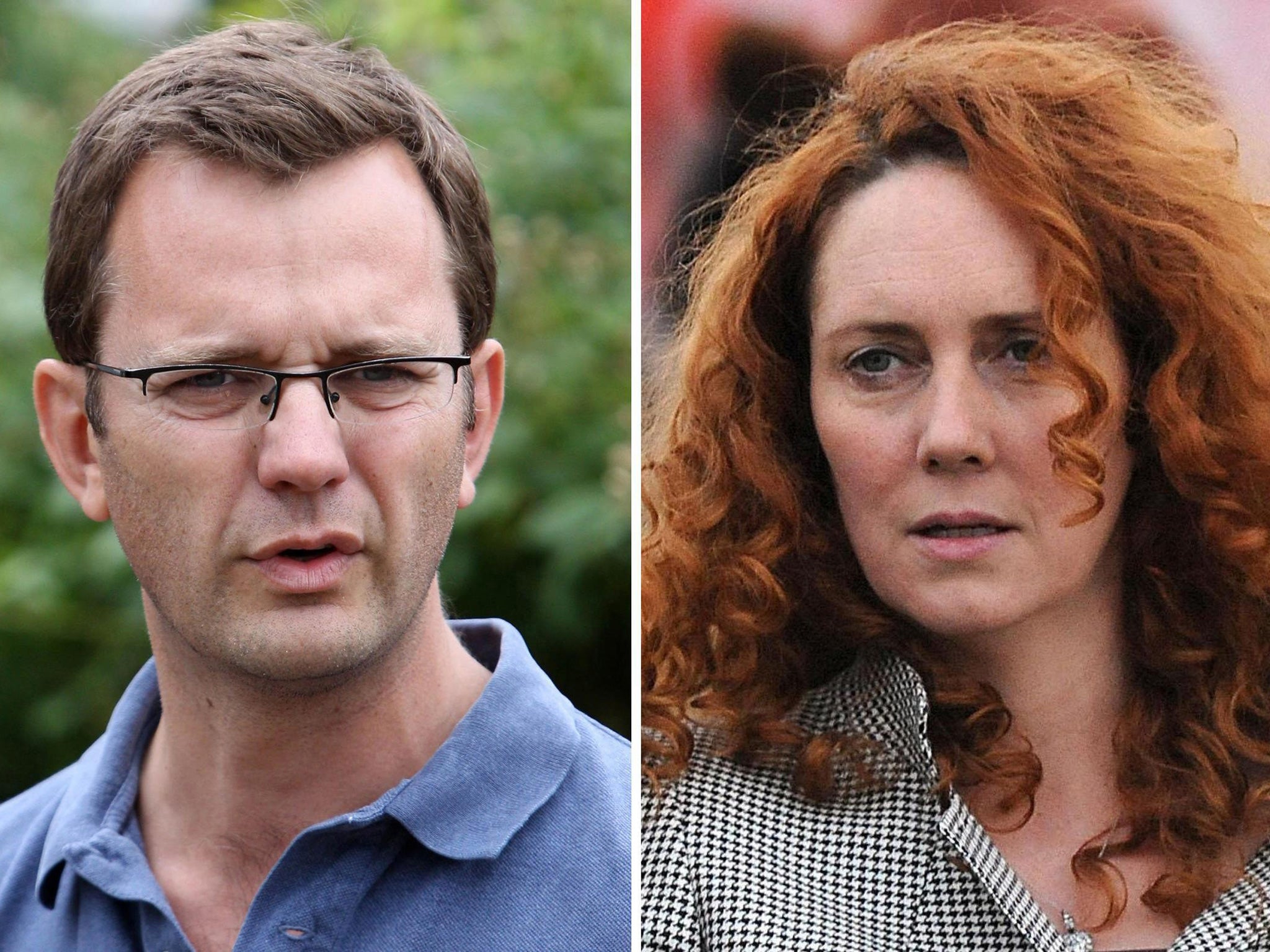Rebekah Brooks and Andy Coulson lose last-ditch legal attempt to block phone hacking prosecution
The former News of the World editors tried to get their case dismissed at the Court of Appeal

News International’s former chief executive, Rebekah Brooks, and the former Downing Street communications chief, Andy Coulson, have lost a last-ditch legal attempt to have charges of illegal phone hacking against them dismissed.
The two, who are also former editors of Rupert Murdoch’s News of the World, were among five staff of the now-defunct News International title who failed to convince the Court of Appeal that a legal and technical definition concerning the “transmission” of telecommunications did not cover voicemails.
Ms Brooks and Mr Coulson, along with former news editor, Ian Edmondson, former chief reporter, James Weatherup, and former managing editor, Stuart Kuttner, have all pleaded not guilty to charges of “conspiring to intercept communications in the course of their transmission without lawful authority.”
Their trial will now begin in September, after Lord Chief Justice, Lord Judge, sitting with Lord Justice Lloyd Jones and Mr Justice Openshaw, dismissed their appeals.
Lawyers acting for the five defendants, were led by Clare Montgomery QC. Their appeal turned on legal arguments over when the course of a transmission of a voicemail message ends, and over when a message is saved by the person receiving it on a public phone network, it remains “in the course of transmission.”
The Appeal Court judges upheld earlier legal rulings that the law - the Regulation of Investigatory Powers Act 2000 (RIPA) - covered both the transmission of messages and when they were stored, regardless of whether the message had been received and listened to by the owner of the mobile.
RIPA replaced the old Interception of Communications Act. It was also updated to include directives and safeguards issued by the European Parliament and Council.
The defendants had argued there was legal ambiguity over RIPA and definitions of interception, the current range of phone technologies, and both the storage and access of communications.
The judges disagreed, stating "contrary to the submission on behalf of the appellants, the resulting situation is not lacking in legal certainty."
It had been expected that, given the imminent criminal trial and previous rulings, there would be no reporting of the Court of Appeal’s decision.
However at the Royal Courts of Justice, Lord Judge allowed the names of the defendants to be reported, saying: "We can see no possible prejudice to the fairness of the forthcoming trial.”
He added "We must not be unrealistic - there can hardly be anyone in the country who does not know to whom this case applies."
The trail of Ms Brooks and Mr Coulson, and others linked to an alleged illegal phone hacking conspiracy, is scheduled to begin on 9 September at the Old Bailey.
It will be the first of three trials against various defendants linked to phone hacking, conspiracy to commit misconduct in public office, and conspiracy to pervert the course of justice.
The initial trial, dominated by hacking charges, is expected to last at least three months. The other trials may reach into April next year.
All defendants have been granted an extension of the bail conditions that have been in place since their arrest.
The hacking scandal surrounding Rupert Murdoch’s UK company, News International, led to the closure of the News of the World in February last year.
Subscribe to Independent Premium to bookmark this article
Want to bookmark your favourite articles and stories to read or reference later? Start your Independent Premium subscription today.
